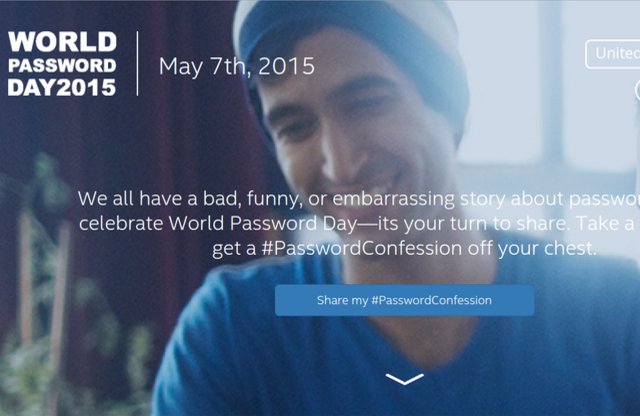
The effort is being launched as part of a partnership between Intel Security, Microsoft, Asus, and the Cybersecurity Alliance. As more database hacks reveal that one of the most common passwords in use today is “password123,” these companies are beginning to realize that if we want to get serious about credential security — it’s time to break out the hash-tags.
Intel is relying on social media sites like Facebook and Twitter to get the word out, with a number of share buttons attached to every tip and tile on the front page. By retweeting under “#PasswordConfession,” thousands of users are sharing their most embarrassing password stories. Some are humiliating, while others are just downright sad, but all are entertaining glimpses into the kinds of passwords people use in the real world.
When my friends’ phones aren’t PIN’d, I change their contact names to LOTR characters. #lotr#PasswordConfessionpic.twitter.com/0ayU0ueZl4
— Lisa Kaminar Brown (@DesignLisaBrown) April 8, 2015
You can even test the strength of your own password using a tool provided by Microsoft on the main site. However, somewhat ironically it seems the home page hasn’t been totally secured itself, with warnings popping up for users that Intel’s portal isn’t configured with “up-to-date security settings” under the HTTPS protocol. This probably means its security certification is out of date, or not properly registered.
While it’s definitely good practice to get into the habit of changing your passwords at least once a year, at the bare minimum you should probably do it on a site that has all its security certificates in order first.
Editors' Recommendations
- Intel Battlemage graphics cards: release date speculation, price, specs, and more
- Intel just launched the ‘world’s fastest’ CPU
- Intel and Microsoft just announced a huge collaboration
- Intel’s new Core Ultra chips needed to be more than this
- Confused about Core Ultra? We were too, so we asked Intel about it


